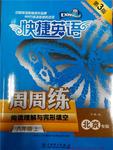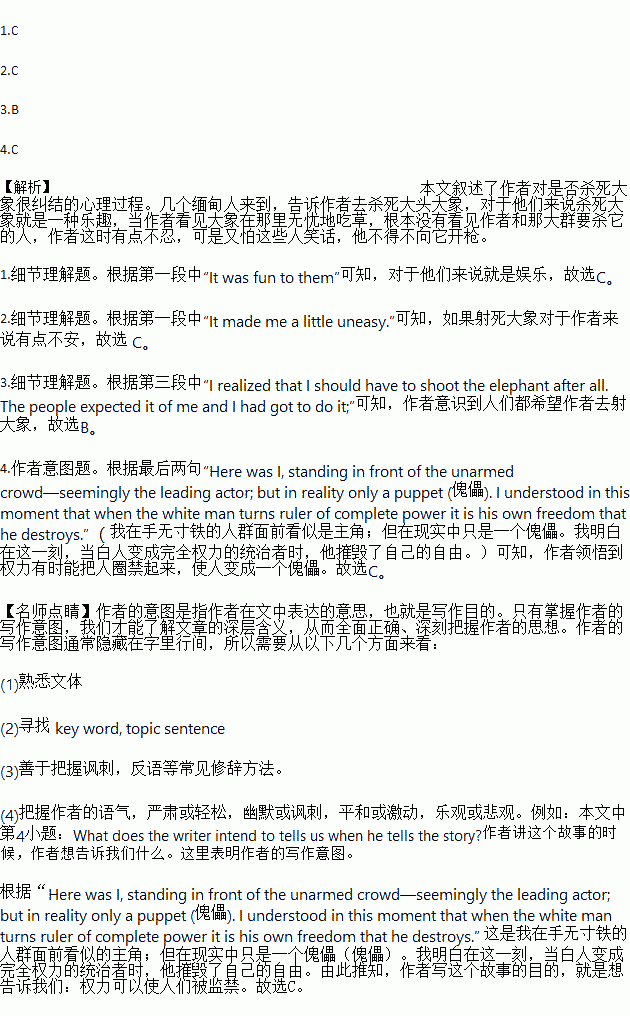题目内容
The orderly came back in a few minutes with a rifle(步枪)and some Burmans(缅甸人). He told us that the elephant was in the rice fields below, only a few hundred yards away. As I started forward practically the whole population of the quarter flocked out of the houses and followed me. They had seen the rifle and were all shouting excitedly that I was going to shoot the elephant. It was fun to them, as it would be to an English crowd; besides, they wanted the meat. It made me a little uneasy. I had no intention of shooting the elephant—I had merely sent for the rifle to defend myself—and it is always uneasy to have a crowd following you. I marched down the hill, looking and feeling a fool, with the rifle over my shoulder and an ever-growing army of people knocking and pushing at my heels. Beyond the huts(小木屋)there was a rice field a thousand yards across, muddy from the first rains. The elephant was standing eight yards from the road. He took not the slightest notice of the crowd. He was tearing up bunches of grass, beating them against his knees to clean them and feeding them into his mouth.
As soon as I saw the elephant I knew with perfect certainty that I ought not to shoot him. It is a serious matter to shoot a working elephant — it is comparable to destroying a huge and costly piece of machinery. There, peacefully eating, the elephant looked no more dangerous than a cow. I thought then and I think now that his attack of “must” was already passing off; in which case he would merely wander harmlessly about. Moreover, I did not in the least want to shoot him.
But at that moment I glanced round at the crowd that had followed me. It was a huge crowd, two thousand at least and growing every minute. I looked at the sea of the faces above the colorful clothes—faces all happy and excited over this bit of fun, all certain that the elephant was going to be shot. They were watching me as they would watch a magician about to perform a trick. They did not like me. But with the magical rifle in my hands I was momentarily worth watching. And suddenly I realized that I should have to shoot the elephant after all. The people expected it of me and I had got to do it; I could feel their two thousand wills pressing me forward. And it was at this moment that I first felt the hollowness(空洞), the uselessness of the white man's control in the East. Here was I, standing in front of the unarmed crowds—seemingly the leading actor; but in reality only a puppet (傀儡). I understood in this moment that when the white man turns ruler of complete power it is his own freedom that he destroys.
1.The people were glad to think the elephant was to be shot mainly because ________.
A. it had damaged their homes and crops
B. it would provide them with meat
C. it would make them feel entertained
D. it was spoiling their rice fields
2.When the writer saw the elephant he felt ________.
A. foolish B. afraid C. pitiful D. confident
3.The writer realized that he had to shoot the elephant because ________.
A. shooting elephants is a serious problem
B. everybody expected it of him
C. he did not wish to disappoint the rulers
D. he had to show how guns are fired
4.What does the writer intend to tells us when he tells the story?
A. Leading actors are sometimes foolish puppets.
B. Governments for white people are useless.
C. Power can sometimes turn people imprisoned (监禁).
D. Unarmed crowds are in control of everything.
 快捷英语周周练系列答案
快捷英语周周练系列答案
